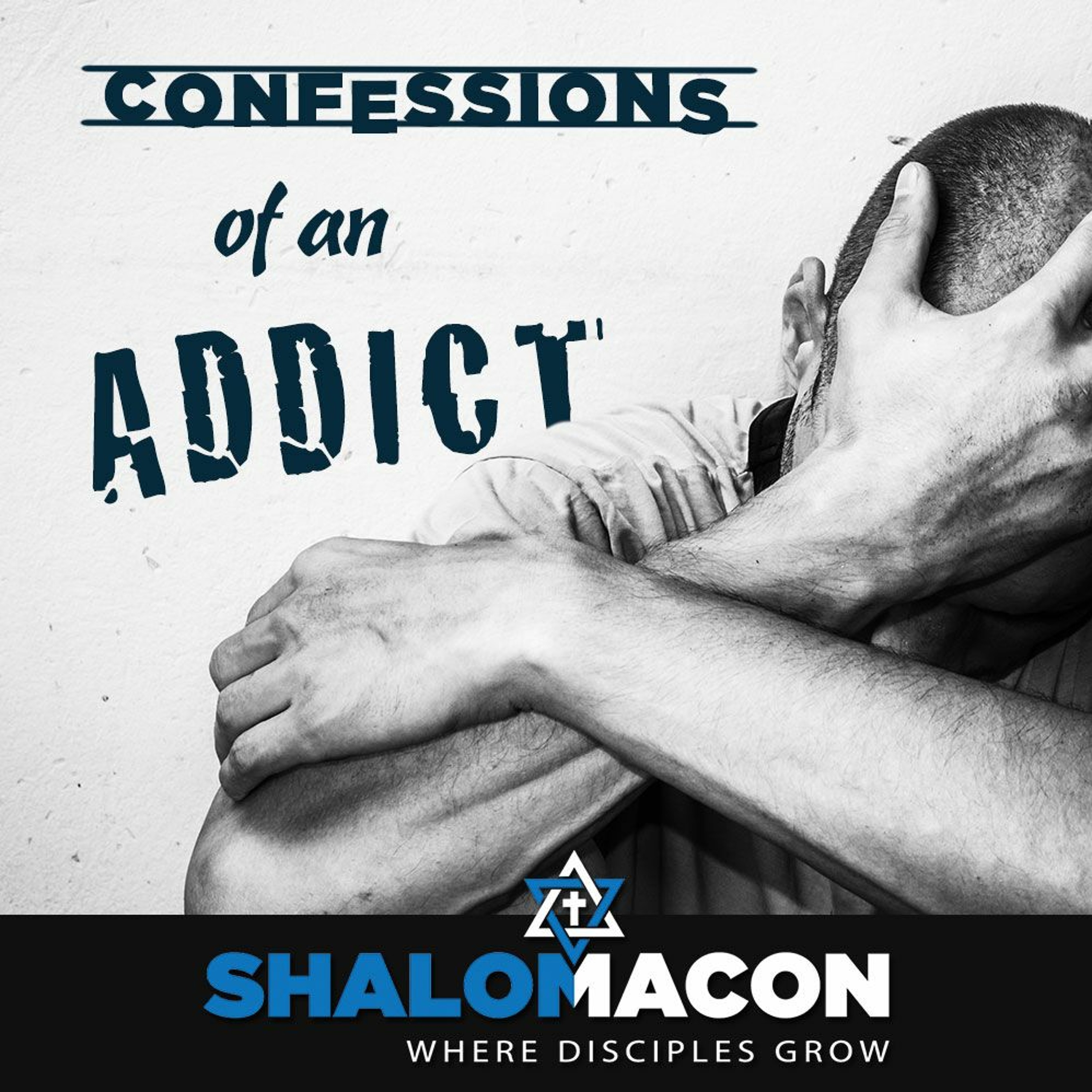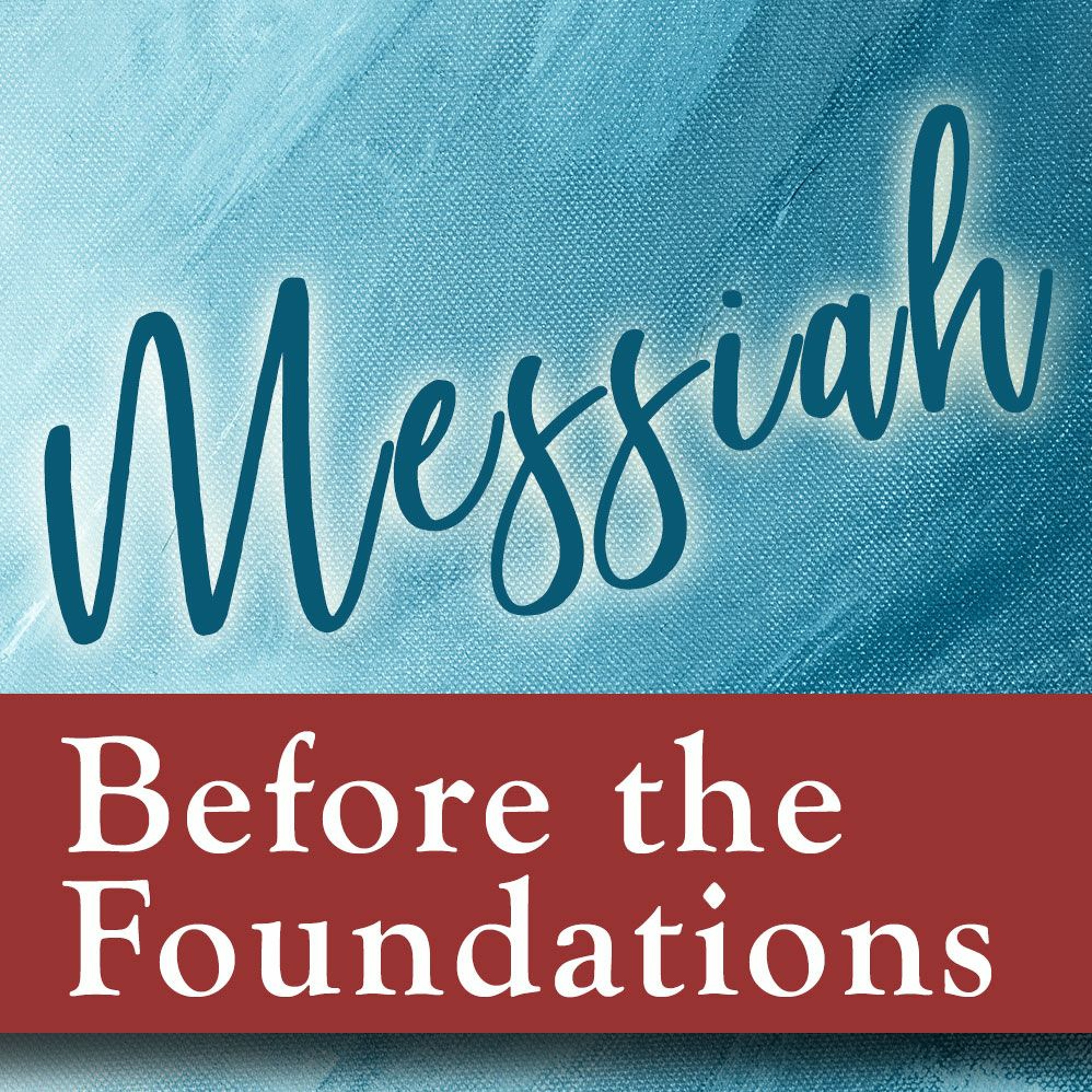Episode Transcript
[00:00:06] In a world full of noise, everyone wants to lead.
[00:00:12] But not every voice is worth following.
[00:00:20] Some lead with fear.
[00:00:22] Some promise what they can't deliver.
[00:00:26] Some just love the sound of their own voice.
[00:00:30] But then there's the voice of the shepherd. In this week's Torah portion, Moses prepares to pass the mantle of leadership. But his final request isn't about legacy or bloodline or control. It's about the flock. He pleads for a leader who will know the people, every one of them, who will walk before them, guide them, protect them. A true shepherd. Let's talk about what separates the Hireling from the good shepherd in this week's five minute tour.
[00:01:03] Shalom and Blessings from Shalom Macon, the place where disciples of Yeshua learn, connect and grow. I'm Darren, and before I get into the five minutes of my five minute Torah commentary, let's cover a few quick facts about this week's Torah portion. This week we are studying the 41st portion, the portion of pinchas, numbers 25, 10 through 30, verse one. And here are the three things that you need to know about it. Number one. Women of courage. Salofhad's daughters. In a powerful display of faith and justice, five sisters, Mahla, Noah, Choghlah, Milcah and Tirzah, stepped forward to challenge inheritance laws. Their father Zelophehad died without any sons and they ask Moshe to grant them a portion in the land. God affirms the request, changing the legal precedent to include daughters in cases where no sons exist. Their courage not only secures their family's legacy, but but reshapes the future for generations of Israelite women. These daughters model righteous advocacy, showing how faith filled persistence can bring about righteous change within the framework of Torah. Number two, a new generation, leadership and legacy. With the death of the wilderness generation, a new census is taken, this time preparing Israel for conquest and inheritance in the Promised Land. As Moshe nears the end of his life, he asks what God to appoint a successor. God chooses Yehoshua, son of Nun, a man filled with the spirit. Through a symbolic transfer of authority, Moshe lays hands on Yahushua before the people, marking an intentional transition of leadership. This moment reminds us that no one is indispensable in God's plan. True leadership prepares others to carry the vision forward into the next generation.
[00:02:50] And number three, Sacred time, Daily and festival offerings.
[00:02:55] The portion closes with a detailed list of communal offerings for Shabbat, Rosh, Kodesh and the major festivals. These sacrifices, brought at specific times throughout the year, helped shape Israel's rhythm of worship. And kept the community centered on God's presence far beyond ritual obligation. These appointed times served as spiritual anchors in the life of the nation. God invites his people into an ongoing covenantal relationship with rooted in rhythm, reflection, and rejoicing. Are you a disciple of Yeshua? There are a lot of people who say they are, but when it comes down to it, they really don't even know what it means to be a disciple. Why? Because discipleship is a concept unique to Judaism. It's an intimate relationship between a rabbi and his student. Yeshua called 12 men to be in his inner circle of discipleship, and those 12 men changed the world. And what did they know about being a disciple that we don't? I wrestled with this question when I wrote my book the Four Responsibilities of a Disciple. There were a ton of books already written on how to make disciples, but I wanted to know what it meant to be a disciple because it seems that all of these disciples that were being made in our day really weren't having an impact on the world around them like they should. I found out that there were four responsibilities every disciple should know and and that when implemented, living out these four responsibilities has the potential to change the world. If you want to know what it means to be a true disciple of our master Yeshua, then check out my book, the Four Responsibilities of a Disciple, using the link below. This week's Torah commentary is called the Good shepherd and comes from my book, Five Minute Torah, Volume 3. In this week's Torah portion, we learn about some of the biblical laws of inheritance through the curious incident of the daughters of Zulukad, which we covered earlier. Zlofkad was never able to bear a son, so he could not pass on his inheritance according to tradition. He did, however, have five daughters within the Israelite legal framework at that time, however, daughters did not have the right to inherit. This was because daughters were assumed to marry into another family and received the blessing of inheritance from their husband's side of the family. This particular case created a precedent by which the laws of inheritance were established. In the instance that the deceased had no direction male descendants. Immediately after the case of Zulukhad's daughters was settled, however, the Lord told Moses that he must go up to the top of the mountain and see the promised land because he was about to die. Moses didn't argue. He knew that God was telling him that his time for leading Israel was over and that the responsibility needed to be passed on to someone else. With the laws of inheritance fresh on his mind, it would seem that Moses would petition Hashem for one of his sons to take his place to lead the children of Israel. But Moses, in his humility, rather than give preferential treatment to one of his sons, prioritized the welfare of the nation. Therefore, Mosheh requested that the Lord appoint a leader over the nation of Israel. But he did so in a unique manner. Moses spoke to the Lord saying, let the Lord, the God of the spirits of all flesh, appoint a man over the congregation who shall go out before them and come in before them, who shall lead them out and bring them in, that the congregation of the Lord may not be as sheep that have no shepherd. This is numbers 27:15 17. Only two places in the entire Hebrew Scriptures do we read the phrase the God of the spirits of all flesh. Other than this passage, the only other time is in Parashat Korach when Moses appeals to the Lord's mercy on behalf of the nation of Israel. He says, o God, the God of the spirits of all flesh. And shall one man sin? And will you be angry with all the congregation? This is numbers 1622. According to Rashi, Moses used this phrase to denote how God knows the character and the needs of each individual. But Moses also uses this phrase in his request for God to appoint an appropriate leader, since an effective leader has to have the ability to lead each individual according to his own personality and needs. Until now, Moses had been the faithful shepherd over the flock of the Lord. Now, however, a new leader must be appointed, and he must love and care for the flock, just as Moses did. Therefore, the Lord designates Yehoshua Joshua to take his place, saying, take Joshua the son of Nun, a man in whom is the Spirit, and lay your hand on him. This is numbers 2718. Joshua was next in line and would lead the children of Israel after the death of Moses. He would lead them physically and spiritually. He would take them to the promised land, and he would be the mouthpiece of the Almighty to them. Along the way, however, many people would covet Joshua's position and try to compete for it. However, there can be only one true shepherd, and the sheep know his voice. Yeshua, an abbreviated form of Yahushua, would eventually and permanently fill this role. He told his disciples, I am the good shepherd. I know my own, and my own know me. This is John 10:14 and they will listen to my voice. John 10:16 he reminds his disciples that as Moses gave up his life for the good of the flock, he would do the same. He said, I am the good shepherd. The good shepherd lays down his life for the sheep. This is verse 11. Just as Moses freely gave up his life for the sake of the flock, so too did Yeshua, but with much more intensity. The good shepherd isn't concerned with his personal agenda. He has the needs of the flock as his first priority. Both Moses and the one like Moses see Deuteronomy 18:15 served the flock and freely gave of themselves to lead them in the ways of the Lord. Many hirelings claim to be shepherds, but only the good shepherd loves the flock and fulfills the needs of each individual. Are you living a life on autopilot? Going through religious motions but feeling spiritually dead? If you're ready to wake up to your God given mission here on earth then you'll want to check out my most recent teaching. Are you awake? Packed with deep insights and just enough humor to take the edge off, you won't want to miss it. Just click on the link right here to get started.



